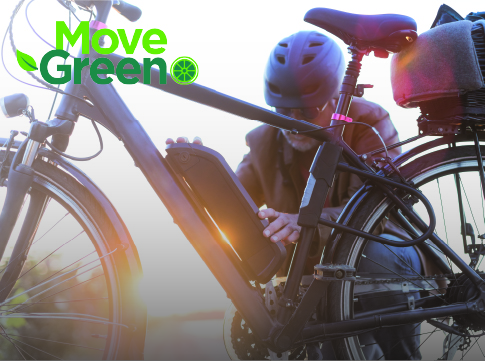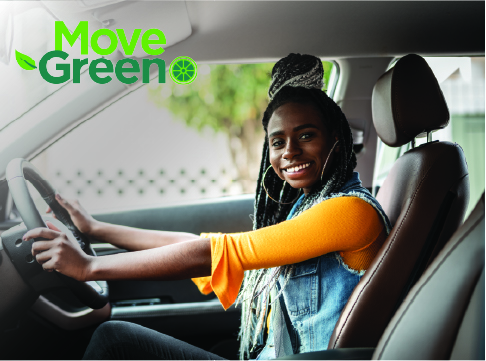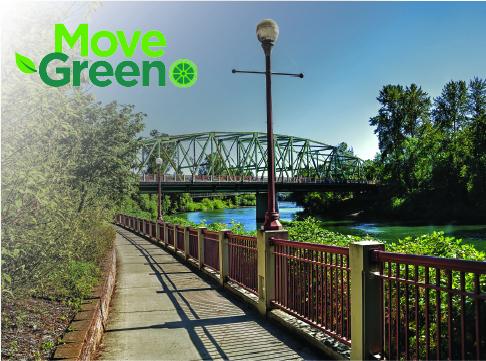Related News
Related News
-
EWEB reaffirms commitment to resilience with Wildfire Mitigation Plan approval
The utility is testing new equipment, leveraging technology, and incorporating third-party expertise to bolster electric system resiliency to a range of threats, including wildfire.
Find Out More -
Vote now for the winner of the 2025 Greenpower Grant
Get ready to cast your vote for the winner of the 2025 Greenpower Grant. EWEB is excited to announce the eligible candidates for this year's grant award! The winner of the Greenpower Grant will be voted on by Greenpower subscribers. Learn more about each origanization and their proposal before casting your vote.
Find Out More -
Water professionals showcase skills in Cascade to Coast Competition
Representatives from local utilities competed to see who has the best-testing water, who can assemble a water meter the fastest and who find the most creative way to solve a routine problem that water utility professionals often face.
Find Out More -
How EWEB’s Fleet Services reached 200,000 hours without a lost time injury
EWEB’s Fleet Services team reached a major safety milestone: 200,000 work hours without a workplace injury that results in an employee losing at least one full day of work.
Find Out More -
EWEB cuts greenhouse gas emissions from operations 55% since 2010
Switching to renewable fuels in EWEB’s fleet operations has played a key role in reducing the utility's greenhouse gas emissions.
Find Out More -
Energy conservation could offset large portion of growth in power demand
Preliminary results of an EWEB study indicate that cutting back demand can contribute to maintaining a reliable, affordable energy supply.
Find Out More -
Groups suing EWEB will burden customers with litigation-driven costs
EWEB expresses disappointment that groups choose court over collaboration and firmly disputes the claims made in the lawsuit relating to operation of the utility’s Carmen-Smith Hydroelectric Project nearly 70 miles east of Eugene. EWEB takes its environmental and public safety responsibilities seriously. Contrary to the assertions in the lawsuit, construction of fish passage was postponed because EWEB’s regulator, the Federal Energy Regulatory Commission (FERC), required the utility to study and resolve urgent dam safety issues first.
Find Out More -
Small number of McKenzie Valley EWEB customers face higher February bills due to estimated reads
EWEB under-estimated energy usage for about one-fifth of upriver customers in December or January, resulting in higher true-up bills in February.
Find Out More -
EWEB offers Greenpower Grant to support local sustainability project
The Greenpower Grant, funded by voluntary customer subscriptions to Greenpower, not customer grants, supports projects that advance renewable energy, clean energy education or efforts to reduce or offset local carbon emissions.
Find Out More -
Rising Together: Female operation staffers begin industry mentorship program
One week into Women's History Month and just before International Women's Day on March 8, three women in EWEB leadership roles embarked on a 10-month-long journey of mentorship, fellowship, and professional development.
Find Out More -
EWEB and BRING cook up new ways to help Eugene businesses save energy
Businesses can cut energy costs with EWEB’s free Energy Assessments and efficiency programs. Plus, for a limited time, BRING is offering $1,000 rebates for qualifying upgrades—apply by Feb. 28!
Find Out More -
EWEB Board Adopts 2025 Goals
Goals focus on supporting low-income community members and renters, while improving operational efficiency.
Find Out More -
PNW Lineman Rodeo raises $85,000 for Oregon Burn Center
EWEB line techs are proud partners and participants in the rodeo fundraiser every year.
Find Out More -
Eugene residents share energy and water saving tips
From blocking a draft to replacing your heating system, each action you take can save water and electricity.
Find Out More -
EWEB customers and employees share the love through Energy Share donations
EWEB budgets funding to help customers struggling to pay their utility bill, but the need is always greater than what we can provide alone. Energy Share, our customer donation funded program helps fill the gap.
Find Out More - Show More
EWEB programs make electric transportation accessible to all
June 01, 2023 • Ashley Cissna, EWEB Communications

Another version of this article was originally published in NWPPA’s January 2023 Bulletin.
Drive down any urban street in the Northwest, and you’ll see an electric vehicle in the next lane. Ride down any commuter bike path, and you’ll see an electric bike zooming along.
Electric mobility is everywhere. But it’s not accessible to everyone.
But EWEB is making a concerted effort to bridge the gap between availability and accessibility of electric mobility through EV car shares, community grants, and rebates. New programs launched last year have proven so successful that EWEB is expanding them.
“It’s one thing to encourage adoption of electric mobility. It’s another thing to make electric mobility accessible,” said EWEB Business Line Manager Juan Serpa Muñoz, who oversees the development of EWEB’s electric mobility programs. “Availability is not accessibility. We want our programs to be accessible, not just available to all members of the community.”
Making electric mobility equitable
A 2021 EWEB study found that EVs deliver greater financial and environmental benefits than other electrification efforts, such as electrifying space and water heating. When customers own an EV, they save money on gas and maintenance. But most EVs currently on the market cost thousands more up front than equivalent gas-powered cars. An Oregon Department of Energy analysis found that less than one-third of EVs belong to Oregonians who earn less than the median household income, while most EVs belong to Oregonians earning twice the median household income or more.
It’s a classic Catch-22: the people who can benefit most from the lower operating costs of an EV can’t afford to purchase one.
So, while it is exciting to see more electric mobility options on the road, it does pose the question: Is the distribution of electric vehicles equitable?
“Social equity must be intentional, at the forefront, not an afterthought of program design,” Serpa Muñoz said. “We try to consider accessibility in all the work we do, with the knowledge that not all programs can be accessible to everyone.”
Serpa Muñoz described how a prosperous business owner may have the financial ability to purchase an EV but could hesitate because of a lack of information. On the other hand, a cashier at a grocery store may not have the money to purchase even the most inexpensive EV. The same rebates and educational resources may be available to both people, but the cashier can’t access an EV because of their income. Programs cannot be standard for both customers; each requires different accessibility options.
Car sharing brings EVs to more people
EWEB has encouraged electric mobility for years through a rebate for EV chargers. But in April 2022, EWEB introduced several new programs aimed at helping remove the financial barrier to electric mobility. These programs are part of EWEB’s suite of carbon-conscious programs that fall under the Green Options umbrella.
One program is an EV-sharing program with Forth Mobility, called GoForth CarShare. EWEB and Forth have partnered with three local agencies—Lane Transit District, St. Vincent de Paul of Lane County, and the City of Eugene—to bring three EVs to under-served populations.
These EVs are located in areas with low EV adoption, and they are available to rent for as little as $4 an hour—making them accessible to more people. The vehicle provided by St. Vincent de Paul of Lane County, a local service provider for those experiencing financial hardship within the Eugene area, is located at a newly constructed affordable housing project for low-income families.
 “Four major impediments to viability for low-income families are childcare, affordable housing, food insecurity, and transportation,” said Terry McDonald, executive director of St. Vincent de Paul of Lane County. “This partnership gave us the opportunity to demonstrate how this type of vehicle transportation through a sharing program could be really advantageous to low-income families and populations. Done in a sustainable manner, it’s even better.”
“Four major impediments to viability for low-income families are childcare, affordable housing, food insecurity, and transportation,” said Terry McDonald, executive director of St. Vincent de Paul of Lane County. “This partnership gave us the opportunity to demonstrate how this type of vehicle transportation through a sharing program could be really advantageous to low-income families and populations. Done in a sustainable manner, it’s even better.”
The GoForth CarShare EVs in Eugene are part of a larger network of car-sharing locations Forth is piloting across Oregon and Washington, with eleven cars currently located in the region. Three of the EVs are in Eugene.
The Eugene locations are exceedingly popular. According to data tracked by Forth, the three cars in Eugene have logged some of the most miles statewide. Forth also found that cars located at affordable housing projects are generally used the most, and one of the vehicles in Eugene is located at such a project.
Several residents at Iris Place have expressed appreciation for the car-sharing program, “I began using the car when my personal vehicle was in an accident,” says Shawna, a resident of Iris Place. “Now I use it regularly as I save up to purchase a new vehicle. It has been super easy and convenient to use. I use it for errands around town and even took it to the coast for a day trip!”
A second vehicle is located at a popular Lane Transit District bus station, Santa Clara Station. This bus station provides members of the community with multiple services, including park and ride, secure bike storage, and multiple bus lines. These amenities provide users of the car share program multiple methods to access the vehicle. The location also has three EV charging stations, one of which is dedicated to the car-sharing vehicle.
The newest location is at the City of Eugene’s Broadway parking garage. “This is a great location for a service like this,” says Logan Telles, a Transportation Planner for the City. “The GoForth CarShare program is a great, convenient way for people living or working in the area to test an EV and see how electric mobility options would fit into their daily lives.”
Grants to expand electric mobility access
EWEB is also bridging the gap in electric mobility equity with new Electric Mobility Community Grants. These grants are awarded to nonprofits, academic institutions, or public organizations that serve the Eugene area and are seeking ways to improve electric mobility.
“These agencies are experts at what they do and the populations they serve, and we see an opportunity to increase equitable access to electric mobility by supporting them through our grant program,” Serpa Muñoz said.
The new electric mobility community grants were introduced in April 2022 and application evaluation began in August. The committee reviewing the grants scored each proposal on several criteria—project feasibility; use of funds; innovation and analysis; social equity; and the educational, environmental, and community benefits. Based on the scores, EWEB awarded five grants of approximately $25,000 each to local organizations.
 The winning proposals covered a broad range of projects, including two e-bike-sharing programs, two EV charging stations and a fleet of electric tricycles to be used in the administration of another local bike-share program. You can read more about the 2022 grant recipients here.
The winning proposals covered a broad range of projects, including two e-bike-sharing programs, two EV charging stations and a fleet of electric tricycles to be used in the administration of another local bike-share program. You can read more about the 2022 grant recipients here.
EWEB announced that we are accepting proposals for the 2023 grants on Earth Day. EWEB hopes the grant program will encourage more organizations to include electric mobility in future projects and thus increase the accessibility of electric mobility to underserved communities. If you are a non-profit, community organization or academic institution, we encourage you to check out the program and apply!
Alternative types of electric mobility
Besides carsharing and electric mobility grants, EWEB also wants to put electric mobility options directly into the hands of customers to incorporate into their daily routine. Rebates for EV chargers have been part of EWEB’s electric mobility efforts for years, but recently the utility added rebates for e-bikes to the mix. In 2022, EWEB launched a $300 rebate for customers who buy e-bikes. The program was so successful that, within four months, EWEB increased the number of allowed rebates per household from one to two. A couple months later, EWEB also expanded the rebate to cover professionally converted e-bikes.
The growth in rebate applications has been explosive. The first month after EWEB announced the rebate, 47 rebate applications were submitted. In October, the number skyrocketed to 231 applications—the largest number of applications to that point. As of March 2023, EWEB has awarded 1,132 rebates to new e-bike owners.
“E-bikes are far less expensive than EVs, so that can open the door to greater levels of access to electric mobility for people with lower incomes,” Serpa Muñoz said. When looking at the rebate applications submitted for single e-bike purchases, it is evident that the majority of e-bike purchases are for moderately priced e-bikes. In 2023 86% of e-bike rebates were for bikes under $3,000, with the average price being $1,800.
EWEB is hopeful that, over time, the cost of e-bikes and EVs will continue to drop adoption of e-bikes will continue throughout the city and electric mobility will continue to become more equitable.
One of the most important ways EWEB serves low-income customers is by keeping rates low. Since the funding for EWEB’s electric mobility projects is provided by credits from the Oregon Clean Fuels Program, these programs don’t impact customer bills.
With the Clean Fuels Program, each EV within the utility’s service territory earns credits, which EWEB can then sell. EWEB uses these funds to encourage electric mobility in populations that may not otherwise have access to this new technology.
“We are projecting that our credits will continue to increase over the next several years. We have no concerns that funding for these programs will become an issue,” Serpa Muñoz said. “And that means we’ll be able to keep helping make electric mobility both available and accessible to our customers.”
Related Programs
Our e-bike incentive increases access to more affordable, zero emission electric bikes and supports our community’s commitment to transportation electrification and active transportation options.
You don't have to own a car to drive electric. Our partnership with Forth Mobility brings three electric car sharing stations to Eugene, including a dedicated station for residents of St. Vincent de Paul's Iris Place.
We're pleased to offer grant funding to help increase awareness, access, infrastructure, and adoption of electric mobility in EWEB service territory.





